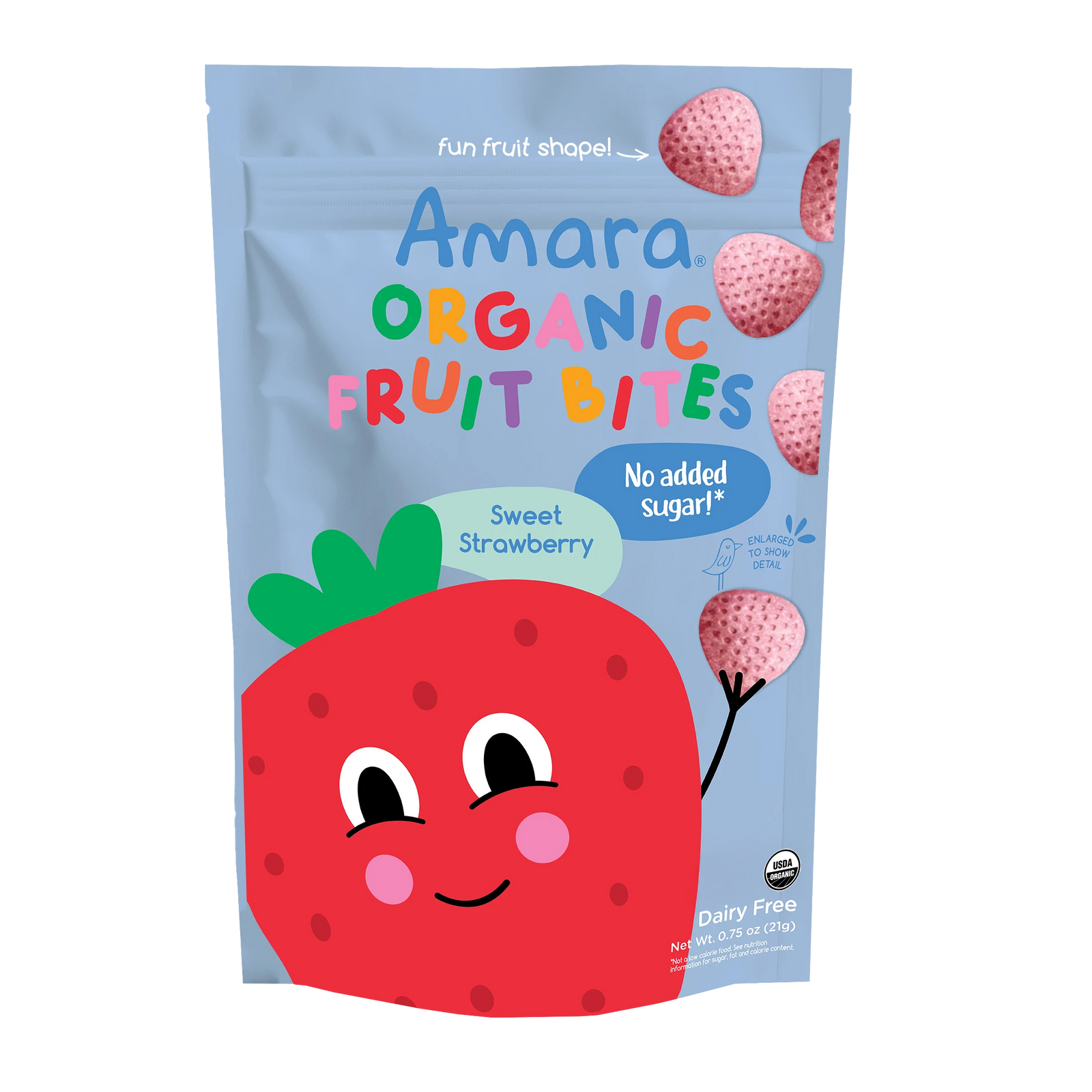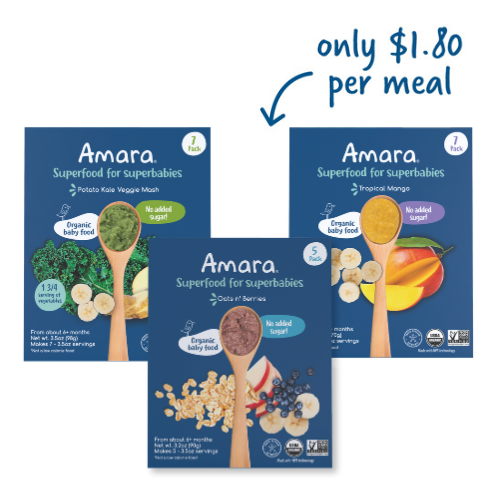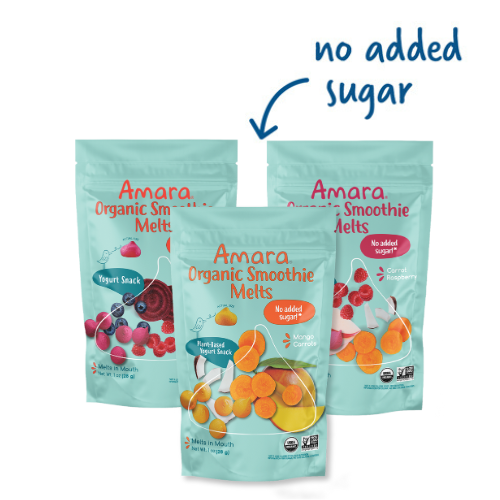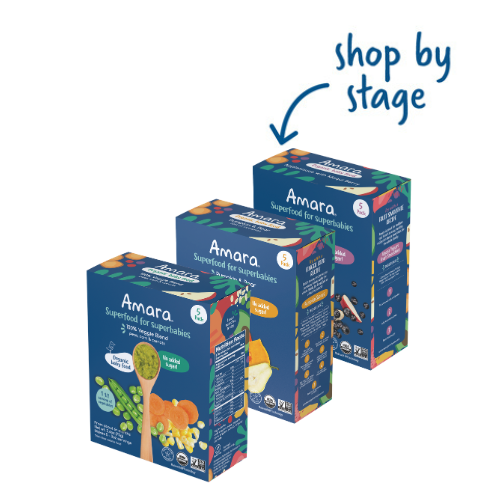Food Allergies and my Baby
What, how and when to introduce allergens with your 4 to 6 month old baby
Food allergies are a major concern for new parents. Going from formula and breastmilk to actually feeding your baby real food is scary enough, but watching your baby get a strong allergic reaction to food is a terrifying experience that no parent wants to go through. Here, we will dive into what an allergy actually is and what today’s studies are showing about allergies and your baby. Food allergies is a complicated and multi-factorial disease that is still not yet fully understood. We’ll talk about whyfood allergies develop and whatfoods are most likely to cause allergic reactions in infants. That being said, this is meant for informational purposes and is by no means a pediatrician’s recommendations (yes, we have to say that). Just remember to discuss all of your food choices with your baby’s pediatrician as you both know your child best.
What is an allergy?
Allergies are quite common, but the range of reactions to an allergic substance can vary from the mildly annoying to the life-threatening. The most typical allergic reactions in your baby can be seen in the form of sneezing, coughing, and itching. An estimated 5% of children under the age of 5 suffer from food allergies. Today food allergies are increasingly discussed in relation to child care and daycare with your baby so we decided to dive a bit more into what an allergy is and what you can do about food allergies with your baby.
Here’s a breakdown of what’s happening when you or your baby has an allergic reaction. When you eat something that could make you allergic (an allergen), your immune system makes an antibody called immunoglobulin E, or IgE. Like all antibodies, it tells the rest of your immune system that there’s something in the body and it needs to be attacked. That attack is the allergic reaction.
The strange part is that in some people, IgE is made in response to an allergen but there’s no reaction. Weird, right? Plus, the amount of reaction from your body can vary so much. Science is still trying to discover why this is and why some people are “more allergic” to certain things than others.
Also, people can become allergic to foods later in life that they had no problems with when they were young. This is believed to happen due to the antibody IgE exposure to that food over time.
Most common food allergies
So, obviously, we don’t want to give our children something that could trigger a reaction. While there are more than 160 foods that have been identified as allergens, eight of them cause 90% of the reactions according to the FDA. These are:
* Milk
* Eggs
* Fish
* Shellfish
* Tree nuts
* Peanuts
* Wheat
* Soybeans
Allergens & Breastmilk
Before you panic about breastmilk, a baby is usually not allergic to their mother’s own breastmilk. There are still a lot of open questions surrounding this topic as the composition of human breastmilk can change within and between mothers. Breastmilk may actually have the potential for preventing allergic reactions in infants. That being said, the composition of breastmilk varies over time as well as during the feeding period itself. Breastfeeding in and of itself is quite complex and many factors may influence the immunologic reactions in infants such as duration of breastfeeding, when you introduce solid foods; family history with allergies; etc.
In most cases, if a baby seems to be allergic to their mother’s breastmilk, it may be if a baby might be sensitive to something that mom ate that passed into the breastmilk. Interestingly enough, seeing a mild allergic reaction in your baby through something that you ate while breastfeeding may be the first sign of a food allergy.
Peanut allergy and your baby
Allergies in general are becoming more and more prevalent in the past 2-3 decades and of all the allergies, the peanut allergy is one of the most difficult to avoid for children. It develops early in life and is rarely outgrown.
Studies around peanut allergy and how to prevent it in your baby are still very varied. There are some studies that suggest that the elimination of the allergen from the diet prevented the development of IgE-mediated food allergy. Paradoxically others show that an early introduction to peanuts may actually reduce the risk of developing a severe peanut allergy than avoidance. This is still being studied but a UK study called the LEAP study tested hundreds of infants between 4-11 months to see if early introduction reduced the chances of allergies later on. The study strongly suggested that it did. While not right for every family, it’s worth mentioning and discussing with your doctor and pediatrician.
Should pregnant mothers change their diets?
To date, there has been no scientific evidence that avoiding allergenic foods during pregnancy will prevent allergies to your children. After birth, mothers may want to watch their diets during breastfeeding, especially if an allergy has been identified.
Reducing the chance of an allergy in your baby
The recommendations from doctors about the introduction of allergy-causing foods have changed over the years. The current recommendations from 2008 are that allergy-causing foods can be introduced into the diet once solid foods are introduced, but that cow’s milk should not be fed to infants until they are 12 months old. As shown with the peanut allergy study, early introduction may be key in preventing some food allergies. However, the prevalence of food allergies for the main allergy-causing foods seems to be increasing in the Western world over the past 2 to 3 decades. Here at Amara, we do not include any of the top 8 FDA allergens in our baby food nor can we make any recommendations for how your family decides to navigate allergens with your baby. Every case is different and it’s important you discuss with your pediatrician what is best for you and your baby.
There have been a number of hypotheses about how we can reduce the chance of allergies in your baby that are worth mentioning. The hypotheses range from early supplementation of fish oil and vitamin D to change the gut microbiota; to avoiding cesarean delivery among other hypotheses. Once a food allergy has developed and been identified, one of the most common things to do is to avoid the allergen and get your baby tested every few years to see if the sensitivity to the allergen has reduced.
Each family is different and each family will make the choice that is right for them. Some want to avoid the possibility of allergens with your baby and chose to avoid the foods entirely, at least until your baby is old enough to deal with the consequences or voice their discomfort. Some food allergies do get outgrown after childhood. Every family has a different situation and some families have a family history of allergies for a particular food, especially a dangerous one, and chose to avoid it entirely until you can get your child tested. Whatever your choice is, it is yours to make (with the help of your pediatrician of course!).
Navigating allergens is scary for most parents introducing solids to your baby. Studies show that diets rich in fruits, vegetables and less processed foods also appear to be associated with less food allergies in your baby. At Amara Organic Foods, we offer an introduction to solids that includes both fruits, vegetables and root vegetables to kick start your baby’s first step to solid foods. We know that you don’t always have the time to make homemade food so we carefully pick every ingredient and use a propriety technique that locks in the nutrients, tastes and textures of the fruits and vegetables. This helps your baby recognize the taste, smell and texture of the real fruits and vegetables so that when they are growing they easily transition to healthy whole meals.
Citations:
https://www.niaid.nih.gov/diseases-conditions/food-allergy-causes-prevention
http://www.todaysdietitian.com/newarcives /030413p14.shtml
Greer et al Effects of early nutritional interventions on the development of atopic disease in infants and children: the role of maternal dietary restriction, breastfeeding, timing of introduction of complementary foods, and hydrolyzed formulas, 2008
Sicherer et al Food allergy: a review and update on epidemiology, pathogenesis, diagnosis, prevention, and management, 2018
www.todaysdietitian.com; Allen et al Prospect for prevention of food allergy 2016
https://www.nejm.org/doi/full/10.1056/NEJMoa1414850







Leave A Comment